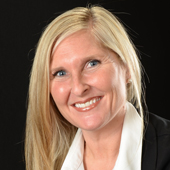Tiffany Woynaroski is assistant professor of hearing and speech sciences at Vanderbilt University Medical Center, Vanderbilt Kennedy Center, Vanderbilt Brain Institute, and Frist Center for Autism and Innovation in Nashville, Tennessee.

Tiffany Woynaroski
Assistant professor
Vanderbilt University
From this contributor
Common sensory response scores may miss important variations
A person’s “overall” score on sensory-seeking, hyperreactive or hyporeactive tendencies may obscure nuances in their individual sensory experience.

Common sensory response scores may miss important variations
Errors of omission: Why we are deeply concerned about research on autism therapies
Studies of autism treatments rarely report adverse events, and the scientists involved often fail to disclose their conflicts of interest.

Errors of omission: Why we are deeply concerned about research on autism therapies
Explore more from The Transmitter
Dendrites help neuroscientists see the forest for the trees
Dendritic arbors provide just the right scale to study how individual neurons reciprocally interact with their broader circuitry—and are our best bet to bridge cellular and systems neuroscience.

Dendrites help neuroscientists see the forest for the trees
Dendritic arbors provide just the right scale to study how individual neurons reciprocally interact with their broader circuitry—and are our best bet to bridge cellular and systems neuroscience.
Two primate centers drop ‘primate’ from their name
The Washington and Tulane National Biomedical Research Centers—formerly called National Primate Research Centers—say they made the change to better reflect the breadth of research performed at the centers.

Two primate centers drop ‘primate’ from their name
The Washington and Tulane National Biomedical Research Centers—formerly called National Primate Research Centers—say they made the change to better reflect the breadth of research performed at the centers.
Post-infection immune conflict alters fetal development in some male mice
The immune-conflict between dam and fetus could help explain sex differences in neurodevelopmental conditions.

Post-infection immune conflict alters fetal development in some male mice
The immune-conflict between dam and fetus could help explain sex differences in neurodevelopmental conditions.